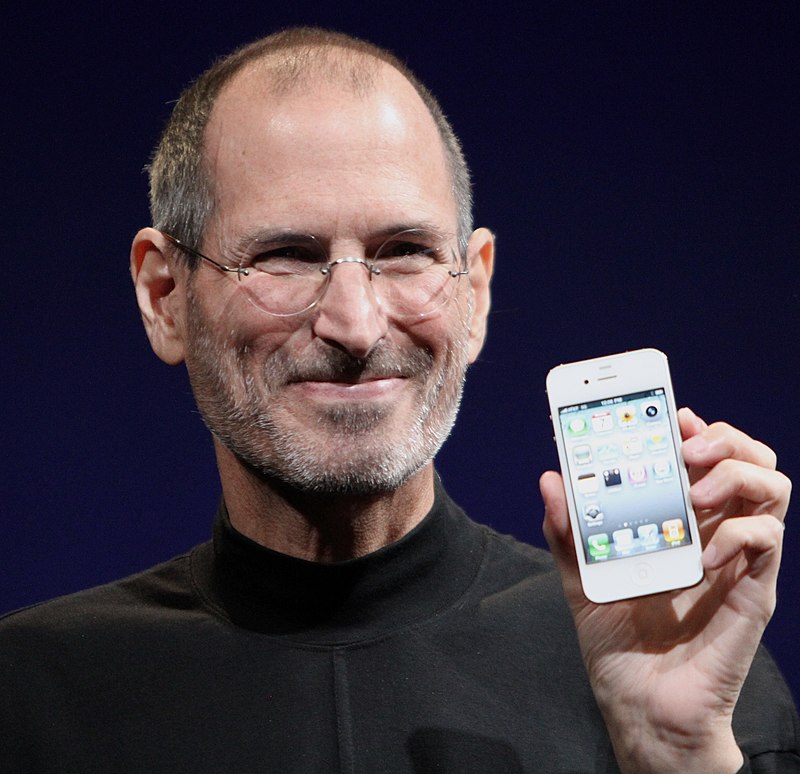Opinion
Steve Jobs: The Visionary Who Revolutionized Technology, And Left A Lasting Legacy, by Isaac Asabor

On October 5, 2011, the world lost Steve Jobs, the visionary co-founder of Apple Inc., at age 56 due to complications from pancreatic cancer. Jobs left an indelible mark on multiple industries, transforming the way people interact with technology through devices like the Macintosh, iPod, iPhone, and iPad. His influence extended far beyond consumer electronics, leaving a legacy that continues to shape modern life.
Born in 1955 in San Francisco, Jobs was adopted by Paul and Clara Jobs and raised in the heart of Silicon Valley. Although he dropped out of college after one semester, his journey would soon see him co-found Apple with his friend Steve Wozniak in 1976, in his parents’ garage. With no formal training in technology or business, Jobs possessed a unique blend of vision and intuition. He believed that computers could evolve from niche tools into devices integral to everyday life, a belief that became the cornerstone of Apple’s success.
Under Jobs’ leadership, Apple introduced the Apple II, one of the first personal computers, and later the revolutionary Macintosh in 1984, which introduced a graphical user interface that forever changed personal computing. Even after his departure from Apple in 1985, Jobs continued to leave his mark. He founded NeXT, a company whose technology would play a critical role in the development of the World Wide Web, and acquired Pixar, which went on to redefine the animation industry with “Toy Story” and other classics.
When Jobs returned to Apple in 1997, the company was struggling. Through his unmatched leadership and relentless pursuit of perfection, he turned Apple into one of the world’s most valuable companies. Products like the iPod, iPhone, and iPad became cultural phenomena, seamlessly integrating into the daily lives of millions of people across the globe. Jobs’ genius was not just in the products themselves, but in understanding how people would use them, and how they would impact culture and communication.
Despite his medical struggles, including a pancreatic tumor surgery and a liver transplant, Jobs’ commitment to his vision remained unwavering until the end. On August 24, 2011, just six weeks before his passing, he stepped down as CEO of Apple, leaving behind a company that embodied his passion for innovation.
Steve Jobs’ journey on Earth was one that left a monumental landmark. His life’s work was not only about creating products; it was about reshaping entire industries and redefining how we engage with the world. As his biographer Walter Isaacson noted, “Jobs was the greatest business executive of our era, the one most certain to be remembered a century from now.” His legacy lives on through the millions of lives touched by his innovations, his bold leadership, and his uncompromising vision of the future.
In the annals of history, Jobs stands alongside great innovators like Thomas Edison and Henry Ford, a true testament to his transformative influence on technology and culture. His earthly journey, though cut short, continues to inspire generations.
Steve Jobs’ journey on this earth is one that future generations should not only admire but also strive to emulate. His life was characterized by a relentless pursuit of excellence, a fearless willingness to take risks, and an unwavering belief in the power of innovation to transform the world. Jobs’ approach to life serves as a blueprint for aspiring entrepreneurs and visionaries. Despite lacking formal technical education and facing numerous professional setbacks, he possessed an uncanny ability to see opportunities where others saw obstacles. His resilience in the face of adversity, from being ousted from Apple in 1985 to fighting health challenges later in life, stands as a testament to his strength of character. His story encourages individuals to persist through failure and keep their focus on a higher purpose.
Moreover, Jobs’ journey highlights the importance of following one’s passion with dedication and discipline. He was not just a businessman or a technologist; he was an artist who approached technology with a deep appreciation for design and user experience. His ability to merge functionality with aesthetics revolutionized the tech world, turning Apple products into cultural icons. This dedication to creating products that people love, not just use, is a lesson that transcends industries and professions. Jobs taught us that true success lies in the impact we make on others’ lives, and that achieving this requires a combination of passion, vision, and the courage to challenge the status quo. His earthly journey, though finite, offers a lasting guide for anyone looking to leave a meaningful mark on the world.






















